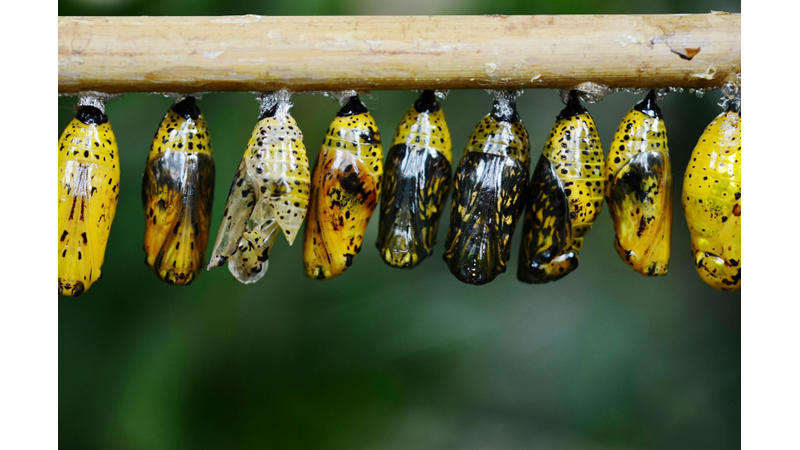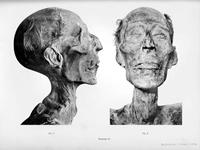In its most basic form, evolution describes the genetic changes that occur in a population over time. This process works by certain gene variants giving organisms an advantage, which increases survival and reproduction rates. These genetic traits are then passed on to subsequent generations.
Evolution has played an important role in the survival of the human species. By adapting to environmental conditions, our ancestors gained various advantages. These advantages came in the form of different abilities, such as being able to recover faster from diseases, protect themselves from predators or be better at finding food.
For example, members of the Bajau Laut tribe are known for their ability to hold their breath for long periods underwater. This allows them to harvest seafood at a depth of 70 meters without the use of diving equipment. Other genetic adaptations can protect against diseases such as malaria, tuberculosis and leprosy.
But as modern medicine and technology allow us to live longer and healthier lives, the traditional influence of evolution on our species is being questioned. Sir David Attenborough, the renowned biologist and broadcaster, has expressed doubts about this. In an interview with Radio Times, he said, “Natural selection is over now that we can raise 90-95 percent of the babies that are born. We are the only species that has voluntarily stopped natural selection.”
However, despite the decline of selection pressures that create life-or-death battles like those faced by our ancestors, scientific research suggests that evolution continues.
One of the factors influencing evolution today is culture. Culture can influence sexual selection, which determines which traits are attractive and with whom one wants to breed. This process can lead to evolutionary changes even over a very short period of time.
“If a genetically based trait, such as hair color, becomes more or less common from one generation to the next, that's considered an evolutionary change,” says Scott Solomon, an evolutionary biologist at Rice University. “This may differ from our understanding of evolutionary change. New traits don't have to appear; an increase or decrease in the frequency of existing traits can also be considered an evolutionary change.”
One example of this is seen in a study published in 2015. The study found that sexual selection has favored taller men in the Netherlands in recent years. While today Dutch men are among the tallest in the world, the situation was different in the 18th century. At that time, the average height of Dutch soldiers was 165 centimeters, shorter than the average height in the US and many European countries. But in just 150 years, thanks to natural selection, Dutch men have grown about 20 centimeters in height, surpassing men in the US and other countries.
Another example of natural selection has emerged with the spread of deadly viruses such as HIV. According to YourGenome, the proportion of genetic variants that give an advantage in fighting this virus is on the rise, especially in heavily affected regions such as South Africa. This adaptation increases the likelihood that infected mothers will survive, and genetic traits can be passed down through generations.
In conclusion, although the processes that influence evolution have changed over time, evolution is unlikely to stop in the near future.


 Nielawore
Nielawore









Yorum yazmak için lütfen giriş yapınız